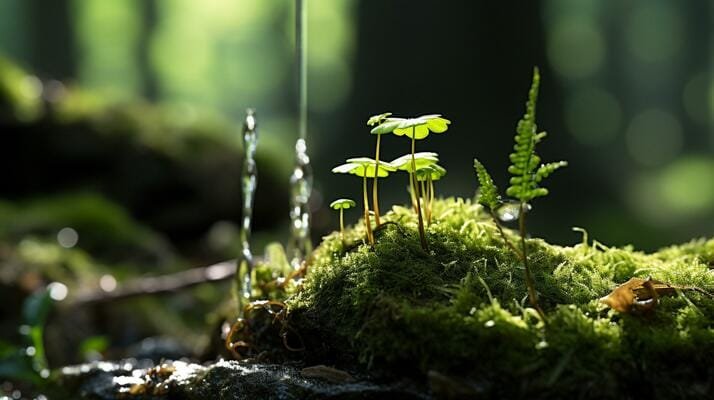Exploring the Wonders of Ecosystems: Nature’s Web of Life
Have you ever stopped to wonder how forests, oceans, deserts, and even your backyard work together to support life? These living systems, known as ecosystems, are the foundation of all life on Earth. Each ecosystem is a complex web where plants, animals, microorganisms, air, water, and soil interact in balance.
What is an Ecosystem?
An ecosystem is a community of living organisms (like animals and plants) that interact with each other and with non-living elements (like climate, soil, and water) in a specific environment. These relationships form a delicate balance that sustains life.
Types of Ecosystems
There are two main categories of ecosystems:
- Terrestrial Ecosystems: Found on land – includes forests, grasslands, deserts, and mountains.
- Aquatic Ecosystems: Found in water – includes freshwater (lakes, rivers) and marine (oceans, coral reefs) ecosystems.
Each type has its own unique features and species. For example, rain forests are rich in biodiversity, while deserts have species that can survive extreme temperatures.
The Importance of Biodiversity
Biodiversity refers to the variety of life in an ecosystem. It ensures that every part of the food chain functions properly. For instance, bees pollinate plants, which feed herbivores, which in turn feed carnivores. If one link breaks, the entire chain can collapse.
Human Impact on Ecosystems
Unfortunately, ecosystems are under threat due to pollution, deforestation, climate change, and urban expansion. These activities disturb the natural balance and can lead to loss of species and even ecosystem collapse.
How We Can Help
We all have a role to play in protecting ecosystems:
- Reduce, reuse, and recycle to cut down on waste
- Support sustainable and Eco-friendly practices
- Plant trees and protect green spaces
- Educate others about the importance of biodiversity
Conclusion
Exploring ecosystems teaches us that everything in nature is connected. Whether it’s a tiny insect or a towering tree, each has a role to play. By understanding and respecting these systems, we can live in harmony with the planet and ensure a better future for all living beings.
“In nature, nothing exists alone.” – Rachel Carson






